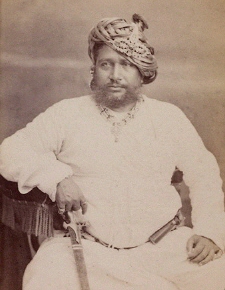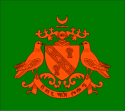| Balasinor State બાલાસિનોર રિયાસત | |||||||
|---|---|---|---|---|---|---|---|
| Protectorate of the East India Company (1811–1857) Princely State of the British Raj (1857–1947) State of the Dominion of India (1947–1948) | |||||||
| 1758–1949 | |||||||
 Balasinor State (dark blue) within Rewa Kantha Agency, British India | |||||||
| Capital | Balasinor | ||||||
| Area | |||||||
• 1901 | 490 km2 (190 sq mi) | ||||||
| Population | |||||||
• 1901 | 32,618 | ||||||
| Government | |||||||
| • Motto | "Lenar pasae thi lidhu" (I took from the taker) | ||||||
| Nawab | |||||||
• 1758 – ? | Sardar Muhammed khan Babi | ||||||
• 1945 – 1947 | Muhammad Salabat Khan | ||||||
| History | |||||||
• Established | 1758 | ||||||
| 1949 | |||||||
| |||||||
| Today part of | Gujarat | ||||||

The State of Balasinor was a princely state in Balasinor during the era of British India and founded by Sardar Muhammed khan Babi and Murtuza Bhatia The last ruler of Balasinor signed the accession to join the Indian Union on 10 June 1948. Its rulers belonged to the family of Babi or Babai (Pashtun tribe) tribe. The state was founded [ citation needed ] by the Junagadh State Babi dynasty.

